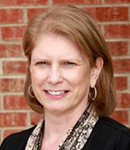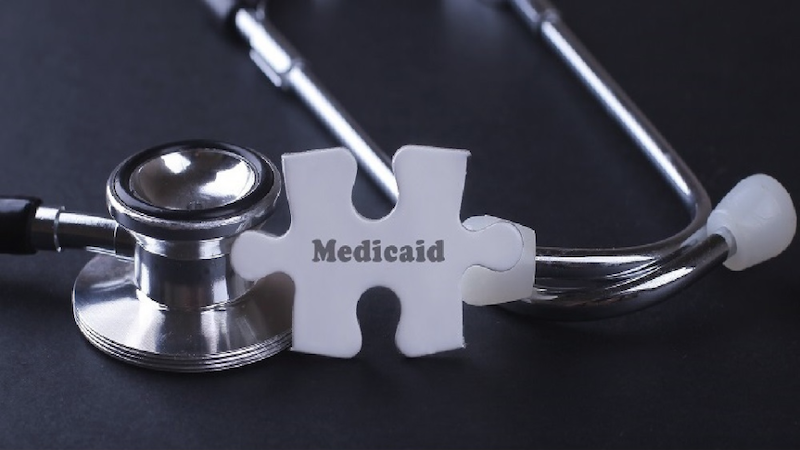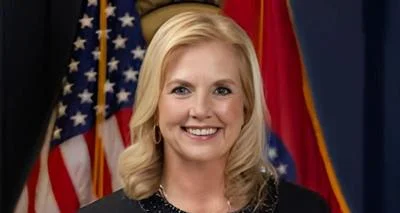Stock photo
Stock photo
Missouri voters agreed to expand Medicaid on Aug. 4, going against the wishes of several powerful politicians including Republican Gov. Mike Parson.
Amendment 2 empowered the state to create a constitutional amendment that will expand Medicaid eligibility to include adults without significant health concerns starting July 1, 2021. It was approved 53.25% to 46.75%, with 1,263,776 voters going to the polls.
Among the advocates for the amendment was the Missouri Developmental Disabilities Council (MODDC), which receives in-kind contributions from the state. The MODDC sent a letter to its members making its position clear.

MODDC Executive Director Vicky Davidson
| https://moddcouncil.org/
“MODDC supports Medicaid expansion," the letter stated. "During the Aug. 4 primary election, Missouri voters will have an opportunity to decide for themselves, whether they will support Medicaid expansion as envisioned by the Affordable Care Act (ACA). This vote comes at a difficult time as Missouri and the nation are in the midst of a public health emergency with the COVID-19 pandemic. This is a time when many hospitals are struggling. Ten hospitals have closed in Missouri since 2014, and many people travel hours to get to a hospital. Missouri is one of 13 states that have not expanded Medicaid.”
The MODDC listed reasons for its support, saying that people at 138% of the poverty rate will be eligible for Medicaid. That accounts for a quarter of the state’s population.
The council also noted that 564,000 Missouri residents were without health insurance prior to the COVID-19 pandemic, according to a study by the Missouri Foundation for Health. That number has increased, as up to 500,000 employees have been thrown out of work due to the coronavirus.
Expanding Medicaid will provide 230,000 Missourians with health insurance, it added.
The Show-Me State Times made several attempts to obtain comment from the MODDC on whether or not the letter was produced and distributed using taxpayer dollars and was it sent out by executive director Vicky Davidson or did the MODDC council vote on the matter, but received no response.
Parson, a first-term Republican, opposed Amendment 2.
“Gov. Parson is not in favor of expanding Medicaid because Missouri cannot afford it,” said the governor's communications specialist, Stephanie Whitaker.
She listed several reasons for his opposition, including Medicaid currently making up more than $2.4 billion of the state’s general revenue budget, or 24% of the total state’s general revenue budget.
Prior to COVID-19, there were 846,000 participants in the Medicaid program. As a result of the pandemic, and the inability for the Department of Social Services to perform eligibility redeterminations, there are currently 940,000.
Medicaid costs have grown by an average of 5% per year. and the cost of Medicaid expansion is estimated to be $170 million annually. As revenues are already declining due to COVID-19, additional cuts will have to be made in order to balance the budget if Medicaid expansion is passed.
The MODDC said Medicaid expansion will benefit the state economically, not harm it. In the letter to its membership, the group said costs would decrease and care would improve.
More than $1 billion in tax revenue would return to the state, the MODDC said in the letter, and create 16,330 jobs annually from 2022-2026, with two-thirds of them outside of metropolitan areas like Kansas City and St. Louis. This will boost the economy by $2.5 billion annually, the letter stated.
Despite the promise of jobs in smaller cities and rural areas, Amendment 2 was unpopular in the state’s 79 counties classified as rural, as all voted against Medicaid expansion. But voters in large cities helped carry it to victory.
Parson said he would work to implement the expansion, since that was the will of the voters.
It was an uphill climb into a stiff wind for opponents, as the Missouri Chamber of Commerce, the Missouri Hospital Association, the NAACP, the AFL-CIO, AARP, Planned Parenthood and Catholic Charities of St. Louis, operated by the Archdiocese of St. Louis, backed Amendment 2.
The two largest newspapers in the region, the Kansas City Star and St. Louis Post-Dispatch, also both endorsed it.
Missouri was the 38th state to approve Medicaid expansion. Like other states with a history of political conservatism, it was passed by voters. Oklahoma did so on June 30, despite opposition from Republican state officials.





 Alerts Sign-up
Alerts Sign-up